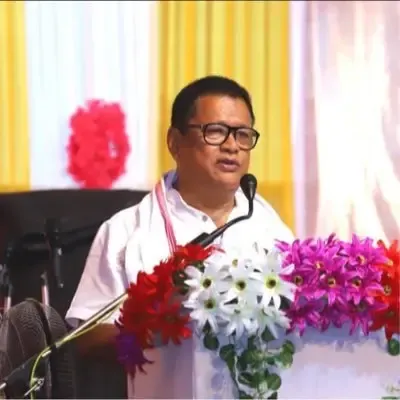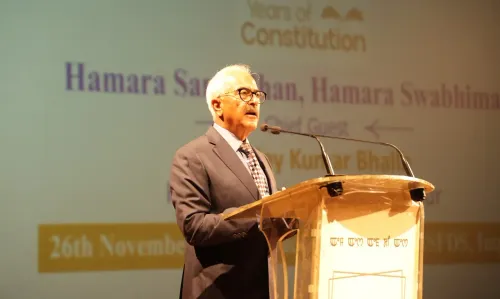Is Assam Regulating Minority School Fees to Stop Arbitrary Increases?

Synopsis
Key Takeaways
- Assam government proposes fee regulation for minority-run schools.
- Over 200 schools currently operate without fee oversight.
- New legislation aims to ensure fairness in education costs.
- Rural schools must charge 25% less than urban counterparts.
- Goal is to improve transparency and accountability in education.
Guwahati, Nov 26 (NationPress) The Assam government has initiated significant reforms regarding the fee structures of private institutions operated by minorities and those located in rural areas. This move is aimed at putting an end to uncontrolled fee hikes and enhancing the clarity and accountability of the educational system.
Education Minister Ranoj Pegu introduced the Assam Non-Government Educational Institutions (Regulation of Fees) (Amendment) Bill, 2025 in the state Assembly on Wednesday. The proposed bill intends to eliminate the current exemption that permits minority institutions to function without a fee certificate from the appropriate authority.
During the Assembly session, the minister remarked that over 200 minority-run schools in Assam currently operate without adhering to the fee regulation framework. He pointed out that these institutions have been setting and collecting fees based on their own judgment in the absence of oversight.
“Currently, the government regulates the fee structure of private schools under the Parent Act. However, schools established by religious or linguistic minority groups are exempt from such control. The new amendment aims to integrate them into a regulated framework,” Pegu stated.
The minister also mentioned that numerous complaints have surfaced regarding schools that modify their fee structures annually without valid or transparent reasoning. In some cases, he highlighted, increased fees are levied to cover operational costs that seem exaggerated or unreasonable relative to actual needs.
Pegu emphasized the considerable differences in fee structures between rural and urban schools. He noted that many remote schools in villages and panchayat areas charge fees equivalent to those in cities, despite having lower infrastructure and maintenance expenses.
The proposed amendment stipulates that rural private institutions must set fees at least 25% lower than those of comparable schools in urban areas. This adjustment aims to alleviate the financial burden on families in rural and economically disadvantaged regions, making education more accessible.
If approved by the Assembly, the bill will facilitate a more standardized, structured, and accountable fee system across Assam. It will also bring minority-run institutions, which previously fell outside state regulation, under a unified framework designed to safeguard the interests of students and their families.
The government is optimistic that this amendment will help prevent exploitation, enhance transparency in school administration, and ensure that educational costs remain equitable and justifiable across all categories of private institutions within the state.









